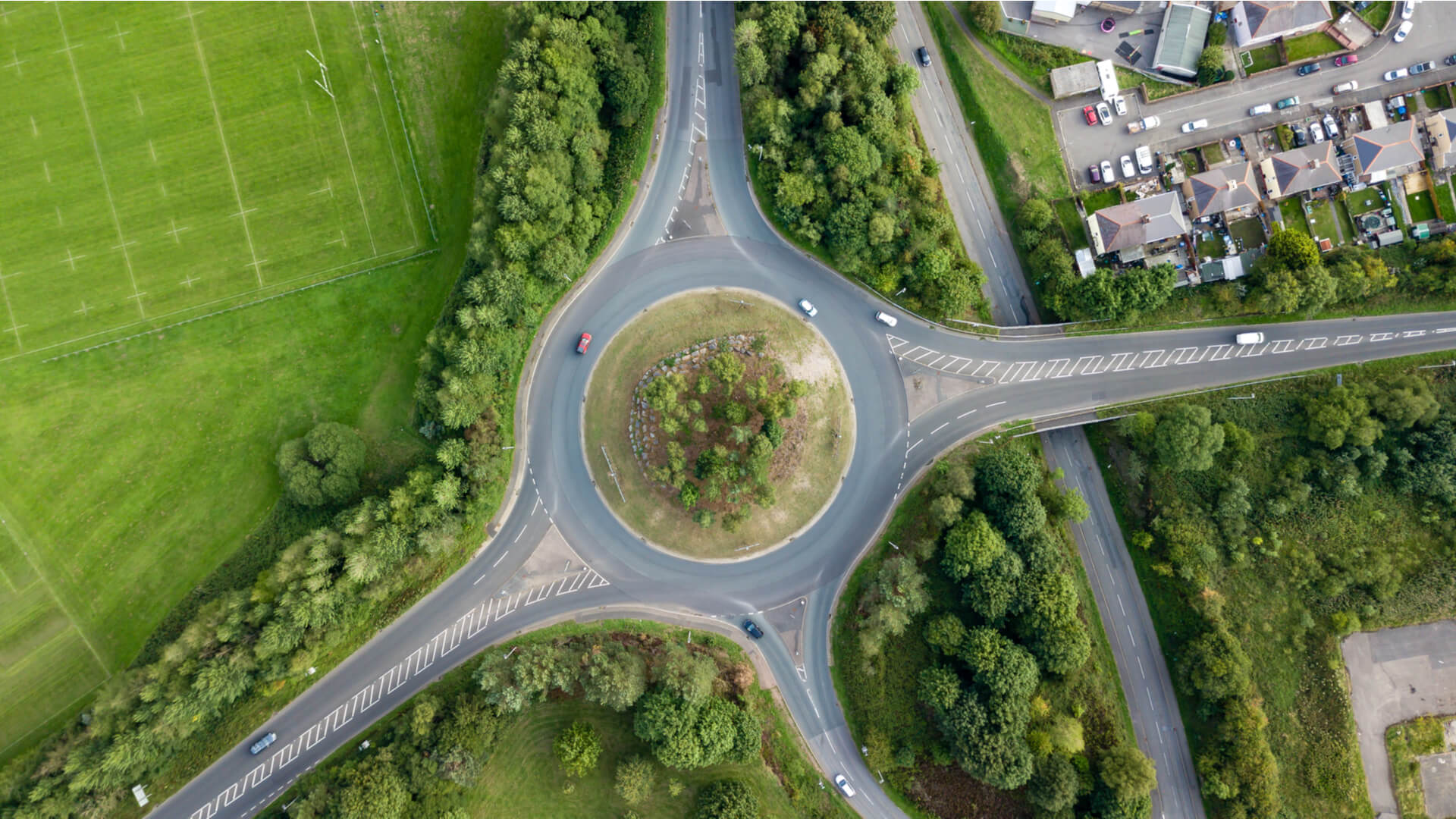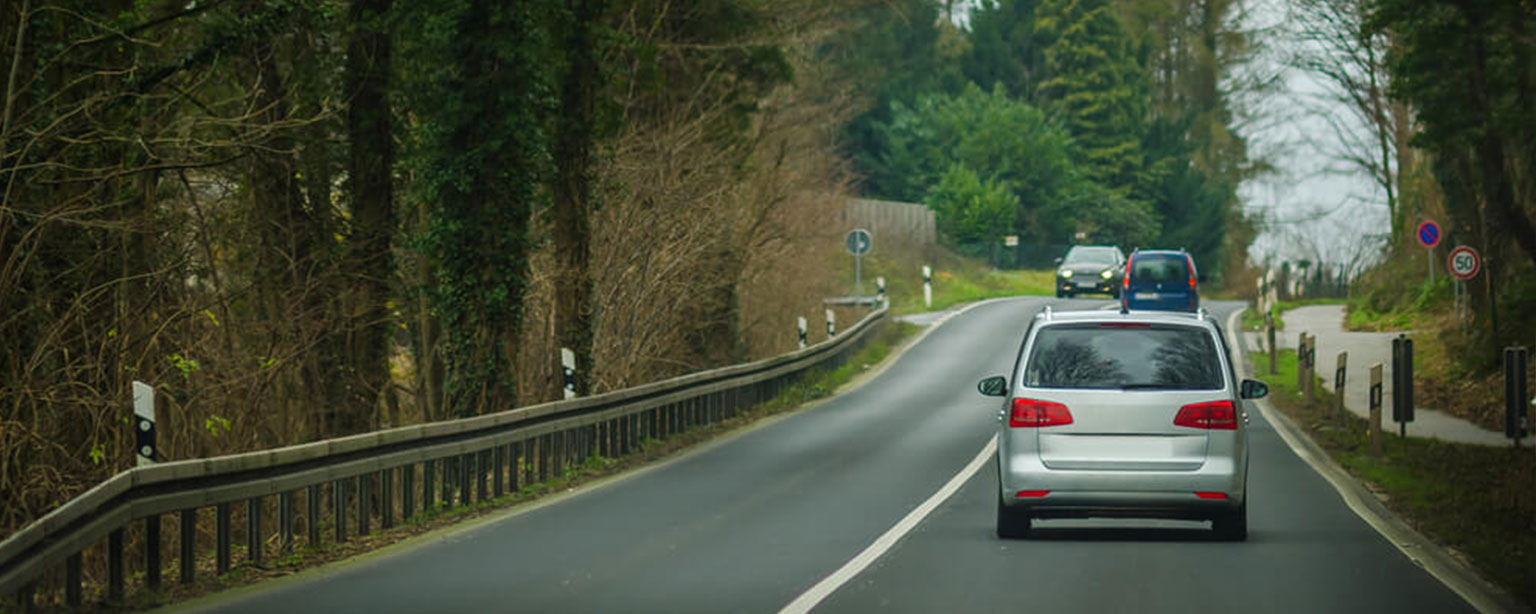Last updated 30 June 2022
Driving offences in the UK range in severity, depending on what’s taken place. Drivers will, typically, be penalised with anything from a minor to major fee, penalty points on their licence, or by having it escalated to a criminal offence and a punishment determined by the magistrates.
If you’re caught driving on the wrong side of the law in the UK, you might know what to expect. But many UK drivers won’t know what happens if caught committing a driving offence abroad – and this can lead to confusion about what happens next.
In our comprehensive guide to driving offences abroad, we demystify what it means for you to be convicted of a driving offence, specifically within the EU. Many UK drivers will be unaware of the implications or rules of overseas driving offences, and how these can have consequences in the UK. As EU law covers most of Europe, we’ve covered that first, but also other European countries where the laws are known and easily understood.
With our help, you can settle whether:
- speeding fines in EU and broader European countries follow you home to the UK
- penalty points accrued in other countries count against your UK licence
- convictions overseas will prevent you from driving in the UK
- What driving rules you need to be aware of before you start driving abroad.
Skip Ahead
If you’ve got a question in mind, and you’re here to find the answers, jump straight to the right information:

EU Rules on Driving Offences, Explained
The EU has a relatively strict rule system in place that means it will share driver details across borderswhen certain offences have been committed. However, post-Brexit, this is no longer the case for UK licence holders. Unless you get fined on the spot, fines will no longer follow you home automatically, instead a request will have to be issued.
Will a Driving Offence Follow Me Home From the EU?
Since Brexit, driving offences that are not dealt with at the roadside, or during the time you are in that country, can follow you home. While there is no longer a data sharing directive between EU police forces and the DVLA (Driver Vehicle Licensing Agency), which is what existed prior to the UK’s exit from the EU, a mutual assistance scheme exists instead.
The History of EU / UK Road Offence Legislation
Did you know, before 2017, the EU had previously attempted to initiate a similar joint legislation with the UK? The first attempt came in the form of a directive (2011/82/EU) suggested in 2013. The UK, at the time, opted out of the directive, suggesting the costs of IT admin and installations outweighed the benefits it would receive from successful fines.
The UK’s lack of involvement in the directive was not the end. Instead, the European Court of Justice annulled it because of, as the AA reports, an “incorrect legal base (police cooperation)”. A new directive was shortly drafted (2015/413/EU) and it was submitted under what was considered the correct legal basis, this time “transport safety”. This applied to all participating states under the EU.
How the Rules Changed After May 2017 Until Brexit
The EU’s rules on cross-border enforcement of driving offences was an attempt to “share” or exchange relevant details, ensuring that consequences could be effective no matter where a driver was when they committed an offence. This meant traffic violations were, to a degree, enforceable wherever you were in the EU, especially when the UK was a member.
That’s not to suggest, however, that before 2017 drivers could avoid punishment for offences committed overseas. There has, instead, always been a level of cooperation in this regard.
But, under the directive, certain things changed:
- there was a more formal bilateral agreement between the UK and Ireland (and Isle of Man)
- countries could execute fines more freely and on-the-spot through “deposit schemes”; this gave police the power to demand payments as a kind of deposit against penalty charges to be settled at a later date
- In severe circumstances, a driving ban could have left UK drivers without a licence, complicating how easily they can holiday or get around abroad.
And now, the laws may be set to change again.
The EU Driving Laws That Affect You (Since Brexit)
Since Brexit, driving offences from abroad, especially where drivers are caught on camera, are no longer automatic when you return home to England, Scotland and Wales. Instead, a request has to be issued by the requesting state (the EU country you were in) to the relevant state (UK governing body) under mutual assistance laws.
To quote the Department for Transport, who we contacted:, “Under the UK-EU Trade and Cooperation Agreement (TCA), EU member states can make a request for mutual assistance for some road safety related traffic offences through the European Convention on the Mutual Assistance in Criminal Matters of 1959 and its protocols (MLA). However, under the TCA the MLA timescales were disapplied for some traffic offences (Article 640(6)) for three years, to allow for negotiation on a long-term solution. The work in designing the future approach to data-sharing is currently under development”
The traffic offences they reference that have no expirable time limit on are:
- speeding, if no injury or death was caused to another person and if the excess speed was not significant.
- failure to wear a seatbelt.
- failure to stop at a red light or other mandatory stop signal.
- failure to wear a safety helmet; or
- using a forbidden lane (such as the forbidden use of an emergency lane, a lane reserved for public transport, or a lane closed down for road works).
Other driving offences, such as those that are more severe, have a shorter time frame of response, and a request must be responded to within 45 days. This means that the more severe the offence, the quicker you are to be fined or sought to appear in court.
The Future of Driving in the EU Post-Brexit
In our post-Brexit world, there could be individual data sharing agreements between certain countries and Britain, although this would be on a case-by-case basis.
For example, Spain and Britain are in talks to have a cohesive data sharing agreement to help increase the percentage of UK drivers who are fined after breaking the law. The DfT also told us that “The work in designing the future approach to data-sharing is currently under development.” There will inevitably be some kind of system at some point, but it is still very unknown.

European Driving Laws
Wider European Driving Laws and the UK
As far as research permits, laws on mutual assistance can mean that certain driving offences will follow you home. As each of these laws is different, and each country’s relationship with the UK is different, it’s best to assume that if you commit a severe penalty, and are caught, legal justice could still be brought on your return home.
As such, you should always follow local driving laws and driving custom.
UK Drivers in Europe – What Laws Affect You?
Even if you’re driving more casually between locations, such as on a road trip, or for holiday, then you should still observe local traffic and road laws, as penalties and fines will affect you – wherever you are.
In any country you drive in, you are expected to not only abide by the law, but ensure that you are aware of the laws that affect each country. While the smaller laws, like not being able to wash your car in Switzerland on a Sunday, might be easier to slip up on, more serious offences like running red lights, speeding, drink/drug offences and others, must be noted.
Getting a Speeding Ticket in Europe
In the UK, speeding is one of the most commonly committed offences for road users. A quarter of UK drivers will, on estimate, be fined for speeding every year. A similar trend in Europe, speeding fines are common for drivers, even those visiting or working abroad from the UK.
If you find yourself in popular tourist hotspots like Italy or France, here’s what can happen.
Speeding Fines in Italy for UK Drivers
Fines can be as low as €42 for going 10 km/h over the speed limit or as high as €21714 for going over 40 km/h and no more than 60 km/h, as well as penalty points. The Italian Police list the fines, and when they are handed out. It’s also worth noting that these fines are increased for both new and business drivers.
Speeding Fines in France for UK Drivers
The default speeding fine in France is €135. Paying earlier can often reduce the total fine – within 15 days, drivers might only have to pay €90. But the longer a fine lingers, the costlier it will become. A maximum fine for speeding in France has been as high as €750.
Fines and Limits in Other European Countries
| Countries | Speeding fine | Speeding source | Date of publication | |
|---|---|---|---|---|
| AUSTRIA | £50.00 | €58.23 | View | 2018 |
| BELGIUM | £119.00 | €138.59 | View | 2016 |
| CZECH REPUBLIC | £1,000.00 | €1,164.59 | View | 2018 |
| DENMARK | £1,000.00 | €1,164.59 | View | n/a |
| ESTONIA | £63.00 | €73.37 | View | Official website |
| FINLAND | £115.00 | €133.93 | View | 2018 |
| FRANCE | £135.00 | €157.22 | View | 2017 |
| GERMANY | £70.00 | €81.52 | View | 2018 |
| GREECE | £100.00 | €116.46 | View | n/a |
| HUNGARY | £30,000.00 | €64.89 | View | n/a |
| ICELAND | £10,000.00 | €933.39 | View | n/a |
| IRELAND | £80.00 | €93.17 | View | 2016 |
| ISRAEL | £750.00 | €873.44 | View | 2015 |
| ITALY | £169.00 | €196.82 | View | 2015 |
| LATVIA | £40.00 | €46.58 | View | 2015 |
| LITHUANIA | £30.00 | €34.94 | View | 2018 |
| LUXEMBOURG | £49.00 | €57.06 | View | 2016 |
| NETHERLANDS | £178.00 | €207.30 | View | n/a |
| NORWAY | £6,400.00 | €7,453.38 | View | 2018 |
| POLAND | £100.00 | €116.46 | View | 2018 |
| PORTUGAL | £60.00 | €69.88 | View | n/a |
| SLOVAK REPUBLIC | £70.00 | €81.52 | View | Official website |
| SLOVENIA | £80.00 | €93.17 | View | 2017 |
| SPAIN | £100.00 | €116.46 | View | 2018 |
| SWEDEN | £2,800.00 | €3,260.85 | View | 2015 |
| SWITZERLAND | £260.00 | €302.79 | View | Official website |
| UNITED KINGDOM | €0.00 | View | 2017 |
(Data from speedingeurope and the relevant government websites) Fine conversions to GBP are dated as of 30 June 2022

What Should You Do If You Get a Speeding Fine in Europe?
The best advice for those caught out speeding in Europe is to pay the fines as soon as possible; ignoring overseas fines won’t make them go away and, worst case, can make future travel to and from countries more challenging.
If you get fined in Europe, there are appeals that can be made, but these are often in the local language, and may be complicated.
What If You Choose Not to Pay Your Speeding Ticket?
It’s easy to assume that once you’re back in the UK, speeding tickets become void. This is not the case. Not only can payments be chased in certain circumstances, but if you try to rent a car overseas again, you may be refused.
In the UK, failure to acknowledge overseas offences won’t go unpunished. There have been circumstances where UK drivers have been taken to trial and even banned over offences.
Do I Need to Pay European Fines if I Was Driving a Rental?
Yes, even if you hired a car, the driver is expected to settle fines, rather than the vehicle owner. In part of your contract for a rental, you take responsibility for paying speeding fines. The rental company will contact you to reclaim the money back, even upon your return home

Drink Driving Laws in Europe
The UK has one of the highest BAC (Blood Alcohol Counts) percentages in Europe, so what may be legal in the UK is highly likely to be illegal in Europe.
In many countries you can also expect to receive much heftier penalties served at the roadside. And if you’ve been in a crash or accident, then allowed BAC is often lowered as it is seen as an ‘aggravating circumstance.’
What are the limits for Drink Driving in Europe?
| Country | BAC limit (%) | Learner/New Driver Limit |
|---|---|---|
| AUSTRIA | 0.05 | |
| BELGIUM | 0.05 | |
| CROATIA | 0.05 | 0 |
| CZECH REPUBLIC | 0 | |
| DENMARK | 0.05 | |
| ESTONIA | 0.02 | |
| FINLAND | 0.05 | |
| FRANCE | 0.05 | 0.02 |
| GERMANY | 0.05 | 0 |
| GREECE | 0.05 | |
| HUNGARY | 0 | |
| ICELAND | 0.02 | |
| IRELAND | 0.05 | 0.02 |
| ITALY | 0.05 | |
| LATVIA | 0.02 | |
| LITHUANIA | 0.04 | 0 |
| LUXEMBOURG | 0.05 | 0.02 |
| NETHERLANDS | 0.05 | 0.02 |
| NORWAY | 0.02 | |
| POLAND | 0.02 | |
| PORTUGAL | 0.05 | 0.02 |
| ROMANIA | 0 | |
| SLOVAKIA | 0 | |
| SLOVENIA | 0.05 | 0 |
| SPAIN | 0.05 | 0.03 |
| SWEDEN | 0.02 | |
| SWITZERLAND | 0.05 | 0 |
| UNITED KINGDOM (excl. Scotland) | 0.08 | |
| SCOTLAND | 0.05 |
Data taken from Wikipedia and is correct as of writing. Where a zero is shown it should be taken to mean as undetectable/ no reading.
Radar Detection Laws in Europe
Radar detectors (speed camera detectors), and other camera detectors often come with UK navigation systems and apps like Google Maps and Waze. While perfectly legal in the UK, many of these systems are actually illegal in foreign countries.
People often confuse radar detectors, which simply alert you to the presence of a radar camera or device, and a radar jammer, which will actually scramble the readings to prevent a proper log of your numberplate and speed being taken.
In some European countries, you can have your licence fully rescinded and heavy penalties into the tens of thousands of euros applied.
| Country | Use Permitted? | Possession Permitted? |
|---|---|---|
| AUSTRIA | N | N |
| BELGIUM | N | N |
| CZECH REPUBLIC | Y | Y |
| DENMARK | N | Y |
| ESTONIA | N | N |
| FINLAND | N | N |
| FRANCE | N | N |
| GERMANY | N | Y |
| GREECE | N | N |
| HUNGARY | N | N |
| ICELAND | Y | Y |
| IRELAND | Y | Y |
| ITALY | Y | Y |
| LATVIA | N | Y |
| LITHUANIA | N | Y |
| LUXEMBOURG | N | N |
| NETHERLANDS | N | N |
| NORWAY | Y | Y |
| POLAND | N | Y |
| PORTUGAL | N | N |
| SLOVAKIA | N | N |
| SLOVENIA | Y | Y |
| SPAIN | N | Y |
| SWEDEN | N | N |
| SWITZERLAND | N | N |
| UNITED KINGDOM | Y | Y |
Mobile Phone Usage and Fines in Europe
As mobile phones have become more advanced and link with more of our lives, the increase in mobile phone usage behind the wheel has become more prominent. It’s an issue that countries are increasingly cracking down on, and also using more technology to spot.
In many countries, you will get a hefty fine for using your phone behind the wheel as well as points on your licence.
How Much Could Using a Phone Behind the Wheel Cost You?
| Countries | Fine (EURO) |
|---|---|
| AUSTRIA | €58.87 |
| BELGIUM | €136.58 |
| CZECH REPUBLIC | €1,177.45 |
| DENMARK | €1,766.17 |
| ESTONIA | €94.20 |
| FINLAND | €117.74 |
| FRANCE | €158.96 |
| GERMANY | €117.74 |
| GREECE | €117.74 |
| HUNGARY | €21.55 |
| ICELAND | €3,797.53 |
| IRELAND | €70.65 |
| ISRAEL | €1,177.45 |
| ITALY | €188.39 |
| LATVIA | €29.44 |
| LITHUANIA | €100.08 |
| LUXEMBOURG | €170.73 |
| NETHERLANDS | €270.81 |
| NORWAY | €2,001.66 |
| POLAND | €235.49 |
| PORTUGAL | €141.29 |
| SLOVAK REPUBLIC | €70.65 |
| SLOVENIA | €141.29 |
| SPAIN | €235.49 |
| SWEDEN | €1,766.17 |
| SWITZERLAND | €117.74 |
| UNITED KINGDOM | €235.49 |
Data taken from a variety of government/police official sites and are researched to the best of our knowledge.
Running a Red Light/Stop Sign in Europe
If you’re at traffic lights and don’t stop, in many European countries you can get a heavy fine. As this can cause huge traffic collisions, not only endangering yourself but other drivers, many European countries will fine you for running a red light.
What’s the Fine for Running a Red Light?
| Countries | Fine (EURO) |
|---|---|
| AUSTRIA | €82.46 |
| BELGIUM | €204.96 |
| CZECH REPUBLIC | €101.22 |
| DENMARK | €268.91 |
| ESTONIA | €235.59 |
| FINLAND | UNKNOWN |
| FRANCE | €159.02 |
| GERMANY | €106.01 |
| GREECE | €824.56 |
| HUNGARY | €107.76 |
| ICELAND | €2,846.34 |
| IRELAND | €94.24 |
| ISRAEL | €418.90 |
| ITALY | €235.59 |
| LATVIA | €35.34 |
| LITHUANIA | €70.68 |
| LUXEMBOURG | €170.80 |
| NETHERLANDS | €270.93 |
| NORWAY | €669.32 |
| POLAND | €117.79 |
| PORTUGAL | €88.13 |
| SLOVAK REPUBLIC | €176.69 |
| SLOVENIA | €353.38 |
| SPAIN | €235.59 |
| SWEDEN | €284.63 |
| SWITZERLAND | €294.48 |
| UNITED KINGDOM | €117.79 |
Data is researched and checked to the best of our abilities.
Smoking in a Car in Europe
Many countries are moving to ban smoking in cars, especially if there are passengers present. The different laws vary across Europe, so it’s always best to check before you light up in a car.
What are the Laws on Smoking in a Car in Europe?
| Country | Smoking in Car Allowed | Allowed UNLESS Passengers | Not Allowed |
|---|---|---|---|
| UK | Under 18 | ||
| France | Under age of 12 | ||
| Spain | Can | ||
| Denmark | Any passenger | ||
| Sweden | Can | ||
| Finland | Can | ||
| Netherlands | Can | ||
| Belgium | Under 18 | ||
| Italy | Minors or pregnant Women | ||
| Austria | Under 18 | ||
| Czech Republic | Can | ||
| Poland | Any passenger | ||
| Greece | Under 12 | ||
| Bulgaria | Can’t | ||
| Romania | Can | ||
| Turkey | Can’t |
Seatbelt Laws in Europe
Under EU law that came into force in 2006, wearing a seatbelt is compulsory in EU countries. As such, European countries that are not EU members have also taken this as law, although adoption is often lacking in some countries.
How Much Will Not Wearing a Seatbelt Cost You?
| Country | Fine Amount (EURO) |
|---|---|
| United Kingdom | €580.00 |
| Greece | €350.00 |
| Spain | €200.00 |
| Estonia | €200.00 |
| Norway | €150.00 |
| Sweden | €150.00 |
| Luxembourg | €145.00 |
| Albania | €122.00 |
| Slovenia | €120.00 |
| Portugal | €120.00 |
| Ukraine | €15.00 |
FAQs
Fines and penalties will be notified to the driver, letting you know of any consequences.
Many insurance sites will allow you to nominate relevant offences when determining the right policy to pair you with. Keith Michaels offers specific convicted driver insurance, and can ensure that you get a competitive quote.
- A sticker denoting the country you are from (UK/GB)
- Safety equipment such as warning triangles, high vis jackets and a breakdown kit
- For city driving, emission certificates
- In snowy countries, you’ll need snow chains and a shovel.

UK Expats Driving Abroad & Driving Offences
The rules for UK expats will look different to those returning to the UK. British residents will be answerable to the DVLA for any motoring offences, but expats will fall under local laws and regulations.
From Germany to France, UK expat drivers may find the switch to foreign roads harder than learning to drive on a different side of the car. The rules may be different, and you should expect them to affect you differently.
Given the complex regulatory landscape in different parts of the world, there’s no one-size-fits-all approach to understanding driving offences abroad.
One thing you might want to know, however, is whether motoring convictions can impact you driving in different countries.
Can A Motoring Conviction Affect Driving Abroad?
If you have a code on your licence but no full ban, then you may still be allowed to drive in certain countries. If you have a driving ban due to your conviction, then you will not be allowed to drive abroad. You should check on how specific driving codes may affect your insurance’s ability to cover you for foreign driving.
How Driving Convictions Affect Travelling Abroad
Depending on the severity of a conviction, motor offences can prevent you from travelling, working or even living abroad.
Drink driving offences, for example, can result in a criminal record, making it harder to travel, work, or live in certain countries. Travelling to the US is a good example of where a conviction can waiver your eligibility to even travel, let alone work or study. Even spent convictions can have an impact and, in the worst-case scenario, undeclared convictions (from driving offences) can result in barred entry to countries like the US.
Worried About Driving Abroad and Whether Offences Will Hold You Back?
If you’ve received a driving conviction while travelling and are worried about your insurance, get in touch with the specialists at Keith Michaels – we specialise in convicted car insurance cover.


